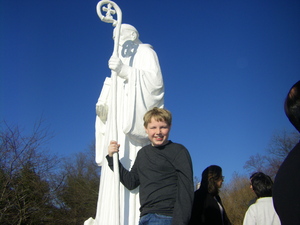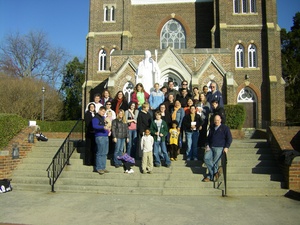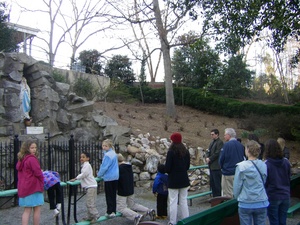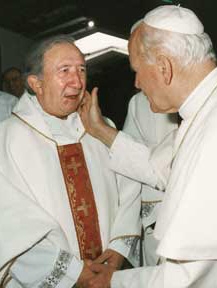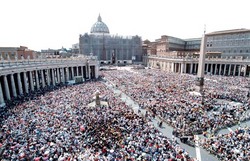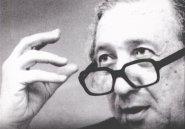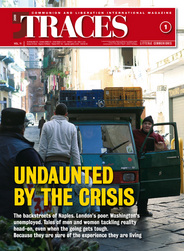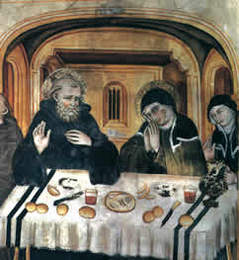Experience
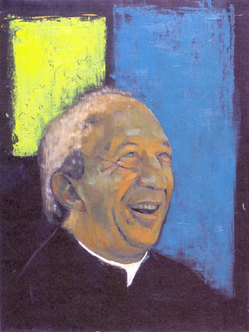 In 1963, Cardinal Giovanni Battista Montini, (later Pope Paul VI, wrote a letter to Fr Giussani in which he raised some questions about the primacy given to experience in the high school youth group Gioventù Studentesca (cf M Camisasca, Comunione e Liberazione. Le origini [Communion and Liberation. The origins], San Paolo, 2001). Father Giussani answered the questions in a booklet entitled precisely L'esperienza (Experience) in November 1963. In August 1964, Pope Paul VI wrote in his encyclical Ecclesiam suam: "The mystery of the Church is not a truth to be confined to the realms of speculative theology. It must be lived, so that the faithful may have a kind of intuitive experience of it, even before they come to understand it clearly" (no 37).
In 1963, Cardinal Giovanni Battista Montini, (later Pope Paul VI, wrote a letter to Fr Giussani in which he raised some questions about the primacy given to experience in the high school youth group Gioventù Studentesca (cf M Camisasca, Comunione e Liberazione. Le origini [Communion and Liberation. The origins], San Paolo, 2001). Father Giussani answered the questions in a booklet entitled precisely L'esperienza (Experience) in November 1963. In August 1964, Pope Paul VI wrote in his encyclical Ecclesiam suam: "The mystery of the Church is not a truth to be confined to the realms of speculative theology. It must be lived, so that the faithful may have a kind of intuitive experience of it, even before they come to understand it clearly" (no 37).
At the beginning of the history of the Movement, the method that was developed to sustain the proposal for living the charism, which is Communion and Liberation, was precisely defined, furnishing a very valuable tool for living the present in greater awareness, a present that is so full of risk because of the ever-recurring danger of reducing experience to sentimentalism or moralism, especially at a time when everything seems to end up in nothingness out of a widespread insecurity. This is the complete opposite of the certitude that arises from the encounter with Christ. It is for this reason that some of Giussani's ideas on Experience are offered here (which later became a chapter of The Risk of Education).
Experience as the Development of the Person
There was a time when the person did not exist, hence what constitutes the person is a given; it is the product of another.
This original condition is repeated at all levels of the person's development. The cause of my growth does not coincide with me, but is other than me.
Concretely, experience means to live what causes me to grow.
A person grows as a result of experience; that is, the valorization of an objective relationship.
Nota Bene: "Experience" connotes the fact of becoming aware of one's growth, in two basic aspects: the capacity to comprehend and the capacity to love.
a) A person is first of all consciousness, a being that is aware. It follows that experience is not the doing or the setting up of relationships with reality in a mechanical way. This is the mistake implied in the phrase "to have an experience," where "experience" becomes synonymous with "trying something out."
What characterizes experience is our understanding something, discovering its meaning. To have an experience means to comprehend the meaning of something. This is done by discovering its link to everything else; thus experience means also to discover the purpose of a given thing and its function in the world.
b) It is also true, however, that we are not the creators of meaning. The connection that binds something to everything else is an objective one. Therefore, true experience involves saying yes to a situation that attracts us; it means appropriating what is being said to us. It is composed of making things our own, but in such a way that we proceed within their objective meaning, which is the Word of an Other.
True experience mobilizes and increases our capacity to accept and to love. True experience throws us into the rhythms of the real, drawing us irresistibly toward our union with the ultimate aspect of things and their true, definitive meaning.
Nature as the Place of Experience
We give the name "nature" to the place where those objective relationships that develop a person take place: nature is the locus of experience.
Characteristically, nature weaves an organized, multi-leveled fabric that awakens the need for unity immanent in each one of us.
This fundamental need finds a correspondence in our affirmation of God, for God is precisely the unitary meaning which nature's objective and organic structure calls the human consciousness to recognize.
Error in Human Experience
The need for unity that animates the conscious life of the person must struggle against divisive forces present in humanity, forces that drive him to disregard objective connections and to tear apart the organic structure of nature's tapestry, isolating each single aspect of it.
Because of the human being's need for unity, isolating each relationship or aspect inevitably turns each relationship into an absolute. All of this blocks the dynamic, evolutionary relationship of the person with reality, creating a series of disjointed pieces that are abnormally affirmed.
This tendency to separate and isolate gives all sorts of typical and inadequate connotations to the word experience, among which are an immediate reaction to things, the multiplication of links through the mere proliferation of initiatives, a sudden attraction or disgust for the new, an insistence on our own designs or plans, insisting on memories of the past that have no value in the present, or even referring to a particular event in order to block aspirations or stunt ideals.
God's Mystery Revealed in the Field of Human Experience
The role of Christ and the prophets in history was to announce with absolute clarity that God is the ultimate implication of human experience, and that therefore the religious sense is an inevitable dimension of an authentic, exhaustive experience.
But Christ's exceptional nature does not lie so much in the fact that His presence calls us to acknowledge that implication as in the fact that His very coming constitutes the physical presence of the ultimate meaning of history.
There cannot be an exhaustive, full, human experience without the valuation, whether conscious or not, of its relation with the event of Christ-Man.
The objective relationship that we spoke of earlier which fulfills the person no longer takes place only in nature, for with the advent of Jesus there is also a "super-natural" place; its development is in the Church, the Mystical Body of Christ.
Christian Experience
The Christian experience and that of the Church are one, single, vital act, in which a triple factor is at work, as follows:
a) An encounter with an objective fact which has an origin independent of the person having the experience. The existential reality of this fact or event is a community that can be documented, like every reality which is fully human. This community has an authority expressed through a human voice in judgments and directives, constituting criteria and meaning.
All forms of Christian experience, even those lived in the innermost recesses of the soul, refer in some way to an encounter with the community and to its authority.
b) The ability to properly perceive the meaning of that encounter. The value of the fact which we encounter transcends our power to understand so much so that an act of God is required for an adequate understanding. The same gesture by which God makes His presence known to humanity in the Christian event also enhances a person's potential for knowledge, raising him up to the exceptional reality to which God attracts him. We call this the grace of faith.
c) An awareness of the correspondence between the meaning of the fact that we encounter and the meaning of our own existence, between the reality of Christ and the Church and the reality of our own person, between the encounter and our own destiny. It is the awareness of this correspondence that brings about the growth of the self, an essential component of experience.
Above all, in the Christian experience one sees clearly that in an authentic experience, human self-consciousness and capacity for criticism are engaged, and that this is very different from a mere impression or a sentimental echo.
It is within this verification of Christian experience that the mystery of the divine initiative exalts human reason. Freedom is at work in this verification. We cannot register or recognize the glorious correspondence between the presence of the mystery and our dynamism as human beings unless we have first accepted and are fully aware of our own radical dependence, of the fact that we are "made." This awareness constitutes our simplicity, purity of heart, the poverty of spirit.
The drama of our freedom is entirely contained in this poverty of spirit, a drama so deep that when it happens, it is nearly hidden.
